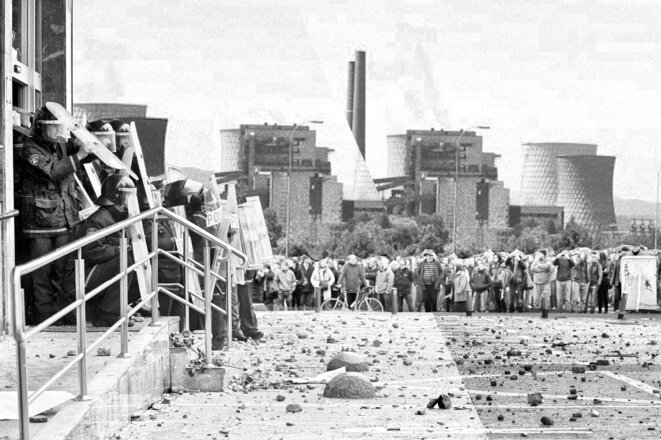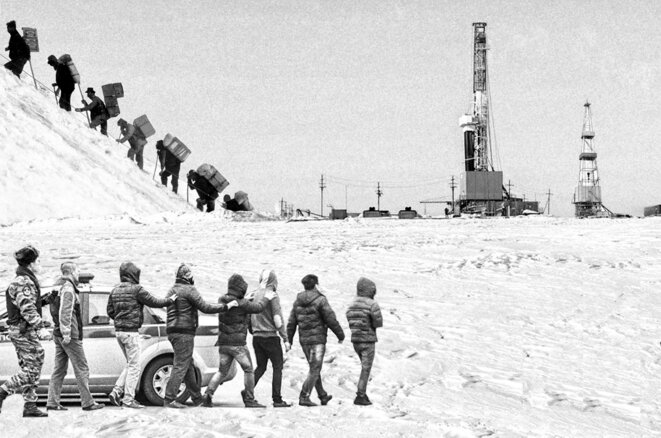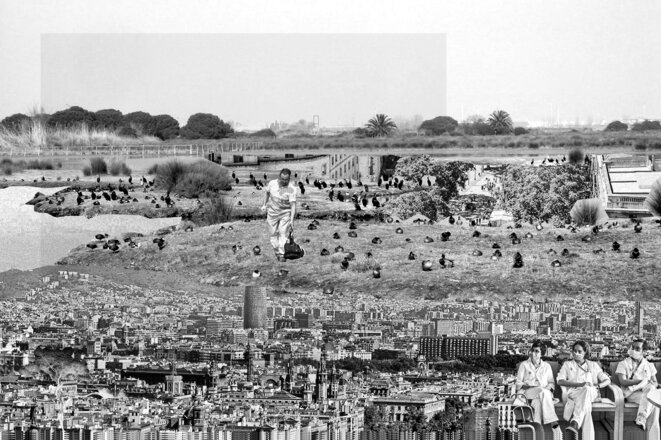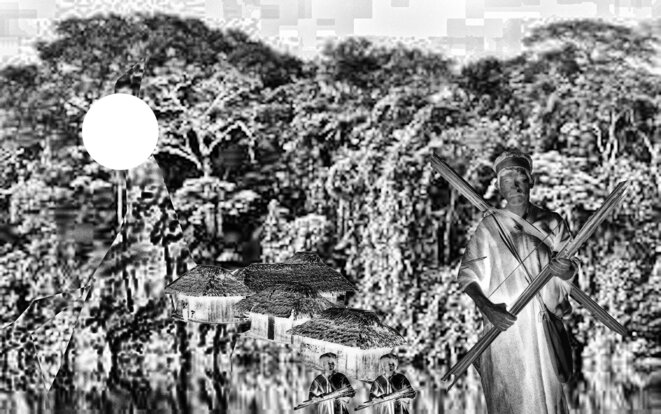
Blog suivi par 8 abonnés
Le blog de Berliner Gazette

À propos du blog
Berliner Gazette (BG) is a nonprofit and nonpartisan team of journalists, researchers, artists, and coders, experimenting with and analyzing emerging cultural and political practices. Since 1999 we have1…
been publishing berlinergazette.de under a Creative Commons License with more than 1,000 contributors. In dialogue with our international network we create annual projects, exploring the issues at hand not only in the form of text series but also conferences and books. Our latest projects include "Black Box East" (2021), "Silent Works" (2020), "More World" (2019), "Ambient Revolts" (2018), "Signals" (2017), "A Field Guide to the Snowden Files" (2017), "Friendly Fire" (2017), "Tacit Futures" (2016), "UN|COMMONS" (2015), "BQV" (2012), and "McDeutsch" (2006).
-
Poisoned by Peace: Environmental Violence As A Weapon in Wars of Capital
 A reality of war that recedes into the background in peacetime but is all the more destructive manifests itself in environmental violence as an integral strategic approach in the “arsenal” of capitalist violence, Damir Arsenijević argues in his contribution to the BG text series “After Extractivism,” exploring the case of Bosnia and Herzegovina.
A reality of war that recedes into the background in peacetime but is all the more destructive manifests itself in environmental violence as an integral strategic approach in the “arsenal” of capitalist violence, Damir Arsenijević argues in his contribution to the BG text series “After Extractivism,” exploring the case of Bosnia and Herzegovina. -
Mobility and Extractivism: Disrupting the Logistical Ecosystem of Capitalism
 In order to contest extractivist relations between humans, as well as between humans and nature, we have to disentangle extractivism and mobility, change mobility patterns that underpin, enable, and foster extractivism, and set off to imagine non-extractive mobilities, Tim Leibert, Lela Rekhviashvili, and Wladimir Sgibnev argue in their contribution to the BG text series “After Extractivism.”
In order to contest extractivist relations between humans, as well as between humans and nature, we have to disentangle extractivism and mobility, change mobility patterns that underpin, enable, and foster extractivism, and set off to imagine non-extractive mobilities, Tim Leibert, Lela Rekhviashvili, and Wladimir Sgibnev argue in their contribution to the BG text series “After Extractivism.” -
Learning from Landscapes: Aesthetics, Identity And The Post-Extractivist Transition
 The coal region of Lusatia in the former East Germany is undergoing fundamental socio-economic changes. The challenge is to work collaboratively and collectively on a just transition – with humans and with non-human and more-than-human community members, Kat Austen argues in her contribution to the BG text series “After Extractivism,” drawing on her artistic research for “This Land is Not Mine.”
The coal region of Lusatia in the former East Germany is undergoing fundamental socio-economic changes. The challenge is to work collaboratively and collectively on a just transition – with humans and with non-human and more-than-human community members, Kat Austen argues in her contribution to the BG text series “After Extractivism,” drawing on her artistic research for “This Land is Not Mine.” -
Dis/continuities of Extractivism in Conservationism: The Case of Seed Banking
 Conservation measures secure not only a wealth of natural resources that are in danger of being lost, but also the world and the way the world is produced. Hence, structures and mechanisms are being secured that caused the very loss in the first place, Franziska von Verschuer argues in her contribution to the BG text series “After Extractivism,” exploring the case of seed banking.
Conservation measures secure not only a wealth of natural resources that are in danger of being lost, but also the world and the way the world is produced. Hence, structures and mechanisms are being secured that caused the very loss in the first place, Franziska von Verschuer argues in her contribution to the BG text series “After Extractivism,” exploring the case of seed banking. -
Rebooting the Political: Cheap Labor, Costly Living, And a Decimated Environment
 Ecocide isn’t simply the fault of “humanity.” Rather, it is caused by capitalism’s relentless pursuit of profit: cheapening labor, making life more expensive, and decimating the environment. Countering this, we need a new kind of collective political subject to arise, Carme Arcarazo and Rubén Martínez argue in their contribution to the BG text series “After Extractivism.”
Ecocide isn’t simply the fault of “humanity.” Rather, it is caused by capitalism’s relentless pursuit of profit: cheapening labor, making life more expensive, and decimating the environment. Countering this, we need a new kind of collective political subject to arise, Carme Arcarazo and Rubén Martínez argue in their contribution to the BG text series “After Extractivism.” -
Decolonization Anyone? Reparations, Repair, and Life in the Aftermath of Disaster
 Following Europe’s colonial-industrial expansion, the climate catastrophe has long since arrived in places that themselves contributed least to it. As lasting environmental destruction has caused not the least large-scale displacement of people, it is high time to decolonize environmental and migration politics, Nishat Awan argues in her contribution to the BG text series “After Extractivism.”
Following Europe’s colonial-industrial expansion, the climate catastrophe has long since arrived in places that themselves contributed least to it. As lasting environmental destruction has caused not the least large-scale displacement of people, it is high time to decolonize environmental and migration politics, Nishat Awan argues in her contribution to the BG text series “After Extractivism.” -
Destroying the Treasure Map: Steps Beyond an Extractivist Subjectivity
 In view of the man-made climate crisis it is high time to question the predatory subjectivity that prevails in the Global North: the ideal, shaped in the colonial era, to seek our freedom and personal fulfillment precisely in decoupling from the environment and the responsibility for human togetherness, as Jaron Rowan argues in his contribution to the BG text series “After Extractivism.”
In view of the man-made climate crisis it is high time to question the predatory subjectivity that prevails in the Global North: the ideal, shaped in the colonial era, to seek our freedom and personal fulfillment precisely in decoupling from the environment and the responsibility for human togetherness, as Jaron Rowan argues in his contribution to the BG text series “After Extractivism.” -
Re-Subjectification of Nature? The (Missing) Legal Foundations of Transition Justice
 Investment protection takes precedence over environmental protection, and international treaties ensure that companies can still profit even from climate measures by suing against the “curtailment of their profits.” A movement that elevates nature to a legal subject opposes this, as Kevin Rittberger and Fabian Flues show in their contribution to the BG text series “After Extractivism.”
Investment protection takes precedence over environmental protection, and international treaties ensure that companies can still profit even from climate measures by suing against the “curtailment of their profits.” A movement that elevates nature to a legal subject opposes this, as Kevin Rittberger and Fabian Flues show in their contribution to the BG text series “After Extractivism.” -
Commoning Vulnerability? Towards a Radical Politics of Earthcare
 While ecological and economic systems are collapsing, a battle for white supremacy is raging; it is not least a class war for (controlling) access to the shrinking living space on the planet. It is high time to counter this development with a radical politics of earthcare, Manuela Zechner argues in her contribution to the BG text series “After Extractivism.”
While ecological and economic systems are collapsing, a battle for white supremacy is raging; it is not least a class war for (controlling) access to the shrinking living space on the planet. It is high time to counter this development with a radical politics of earthcare, Manuela Zechner argues in her contribution to the BG text series “After Extractivism.” -
Fighting Extinction: Of Threatened Rainforests and Ghostly Caretakers
 In Peru, where nature is treated as a cheap and inexhaustible source for profit accumulation, the reality of extractivism is becoming violently tangible. Resistance to this violence reveals indigenous life forms that, though facing extinction, could be the key to our planetary future, as Eliana Otta shows in her contribution to the BG text series “After Extractivism.”
In Peru, where nature is treated as a cheap and inexhaustible source for profit accumulation, the reality of extractivism is becoming violently tangible. Resistance to this violence reveals indigenous life forms that, though facing extinction, could be the key to our planetary future, as Eliana Otta shows in her contribution to the BG text series “After Extractivism.”
- Page précédente
- 1
- 2
- 3
- 4
- 5
- …
- 9
- Page suivante


